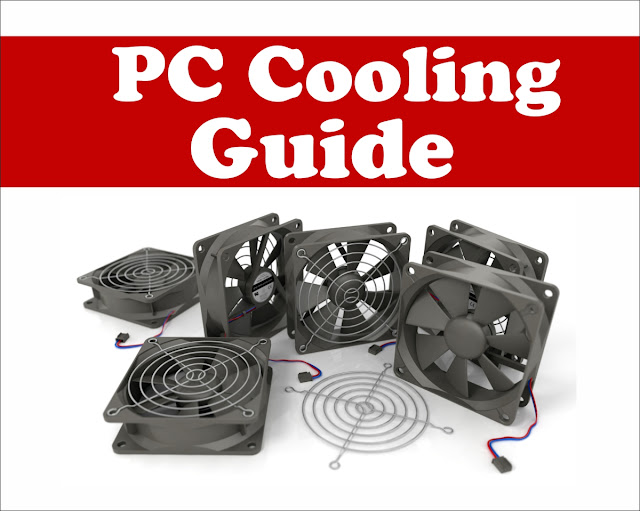Know More About PC Cooling
During the summertime, it is crucial to keep yourself and your PC cool, as your PC needs to cool down the same way your body does. With this basic of PC cooling guide, you will learn the various way to keep your PC cool, and it's importance. Keeping in mind that most electronics give off some heat, there are some that need to be cooled down more rather than others.These special components are:
RAM ?
Processor ?
Voltage Regulator Modules ?
GPU ?
Chipset ?
The basic rule is, that the higher the power consumption of the device, the more heat it will produce. However, this is not a hard set rule. For instance, a power supply has the ability to consume 1000W from a single wall socket, but that will not be able to generate the same range of heat that a video card that is consuming 250W does.
Processor ?
Voltage Regulator Modules ?
GPU ?
Chipset ?
The basic rule is, that the higher the power consumption of the device, the more heat it will produce. However, this is not a hard set rule. For instance, a power supply has the ability to consume 1000W from a single wall socket, but that will not be able to generate the same range of heat that a video card that is consuming 250W does.
What Are The Types of PC Cooling?
There are a few ways you can cool your hot PC, as each process is based on a different magical solution offered by physics.Liquid Cooling -
A liquid cooling process mostly uses distilled water as it's main cooling method. Where heat gets picked up from the component, transferred to the radiator, and the liquid is cooled. One of the advantages of liquid cooling is that it offers the ability to take on higher heat capacity.The main liquid cooling components are:
Heat Blocking ?Pump ?
Radiator ?
Reservoir
Liquid water cooling uses a closed loop system that includes a heat block, a radiator, and a pump. These aren't serviceable beyond installation and/or basic maintenance. Which means you cannot add additional tubes and parts to expand the system.
Air Cooling -
This is based on a heatsink, fan, and heat pipes that use the air found in the case for cooling. The cooler air picks up the heat from the device, and it either airflow from the cases fan, or it naturally carries the hot air away. This is considered to be the most basic cooling method and is considered to be a more affordable option. However, the more effective the air cooling system, the larger it will be in size. ? Heatsink ? Heatspreader ? Heat Vapour/PipeHere a fan forces convection using a heatsink, easily pushing more air through the system than it naturally would.
What is The Effect Of Heat On Your PC?
Thermal stress can have a weird impact on your system, as when some components get hot they tend to expand. Similarly, when they cool off the contract. When a component goes through the expanding and contracting process over and over again, it causes a great deal of damage to the system.With the passage of time, the heat will accelerate and decrease the reliability of your device. This in return affects the stability of the overall performance of your PC. Moreover, if the higher components start to perform low, then the lower components will be heavily impacted. This puts a great deal of pressure on the entire system, and it is no longer considered reliable and safe to use.
These two are some of the basic and common effects of heat on your PC. Keeping in mind that each system is different, and offers a unique issue when it comes to heat damage. As there is a great deal more to consider than a basic system. The impact will depend on the surroundings, the weather conditions, where it is located, what system does it run, how powerful the system is.





No comments